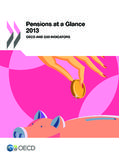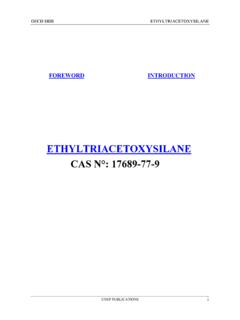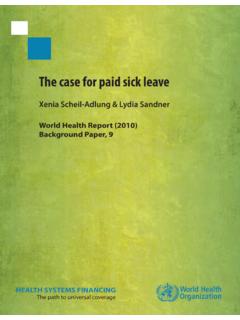Transcription of The Relationship between ADHD and Problem …
1 The Relationship between adhd and Problem Gambling Student Presenter: Oliver R Waluk. Supervisor: Dr. Nicki Dowling S. What do we mean by Problem Gambling ? S Problem Gambling S Characterised by difficulties in limiting time and/or money spent gambling, which leads to undesirable consequences for the individual, others, and/or the community . S Includes but is not limited to DSM-5 Pathological Gambling What do we mean by Problem Gambling ? S Prevalence rates range from to , with the average rate across all countries reported at What do we mean by adhd ? S Attention Deficit-Hyperactivity Disorder ( adhd ). S Characterised by significant problems with attention, hyperactivity, and/or acting impulsively that are deemed not appropriate for the persons age S Symptoms must occur before the age of 12.
2 Years according to DSM-5 criteria S Prevalence of adhd in the community has been shown to be as high as 14% (Kessler et al., 2007). S adhd occurs between 3 to 7% of school-aged children in the US and between to of children and adolescents worldwide S Young boys are more likely to be diagnosed with the disorder than girls. Why study adhd and Problem Gambling? S Both adhd and Problem gambling place considerable social, psychological, and financial burdens on patients and their families. S Problem gambling is related to: S Higher amount of legal problems, bankruptcy, incarceration, divorce, and an overall reduced quality of life. S Patients with adhd often: S Underachieve in educational settings, experience a large amount of parental and peer rejection, are under-employed or unemployed, retain a higher risk for accidental injury, and are more often arrested and convicted of criminal offences Complicating the clinical profile: Comorbidities S Both Problem gambling and adhd have been found to be comorbid with other disorders S This complicates the clinical profile of patients with implications for screening, assessment, management and overall treatment.
3 S Problem gamblers have high rates comorbidity for any type of anxiety disorder ( ), substance use disorders ( ), any type of mood disorder ( ), and nicotine dependence ( ). S 70-75% of clinic-referred adults with adhd have at least one co-occurring psychiatric condition S adhd is often comorbid with depression (16-31%), anxiety (24-60%), obsessive-compulsive disorder (4-14%), and substance abuse (32-53% alcohol abuse, 8-32% other). Previous Studies: Relationship of adhd and Problem Gambling S Adolescents and young adults who screen positively for adhd are: S more likely to engage in gambling S develop gambling problems S experience a greater severity in gambling problems S Conversely, adolescents who report Problem gambling behaviours are more likely to possess a larger proportion of adhd .
4 Symptoms. Previous Studies: Relationship of adhd and Problem Gambling S There is evidence to suggest that between and of Problem gamblers seeking treatment for their gambling problems have a comorbid psychiatric diagnosis of adhd . S Problem gamblers with a history of adhd have more severe: S gambling related cognitions S a higher frequency of psychiatric comorbidities S and an elevated risk of suicide S adhd impulsivity symptoms in childhood, may predate the onset of future Problem gambling behaviour S adhd Problem gamblers may comprise a special at-risk group . Previous Studies: Pathways to Gambling S adhd is a key risk factor in Blaszczynski & Nower, (2002) Pathways model of Problem gambling.
5 S adhd is implicated in the Third pathway, known as the antisocial impulsivist , along with impulsivity, antisocial personality disorder, and substance use. S Neurobiological studies support the existence of adhd as a risk factor of Problem gambling and the significant relationships between substance abuse, impulsivity and Problem gambling. S Subtypes that most closely resemble the antisocial impulsivist pathway are most likely comprised of young, male Problem gamblers. Limitations of Previous Studies S Past studies are often limited to predominantly adolescent or young adult samples. S The quantity of studies is quite sparse as this is a relatively new area of research.
6 Our Study Aims S Our study aimed to investigate the Relationship between adhd and Problem gambling in a clinical sample of adult treatment seeking Problem gamblers by: S (a) exploring the prevalence of adhd in a clinical sample compared to the 14%. prevalence in the community (Kessler et al. 2007). S (b) identify any key relationships between adhd and Problem gambling severity, impulsivity, Cluster B personality disorders, alcohol use, substance use, gender, and age S (c) investigate the degree to which these factors moderate the Relationship between adhd and Problem gambling severity. Participants and Procedure S Participants S 189 adult treatment-seeking Problem gamblers (137 males, 50.)
7 Females, 2 unspecified). S Aged 21-74 years old S Majority were Australian born ( ), single, and in full time employment S Procedures S We used previously collected data S Participants presented to a Problem gambling treatment service in Melbourne, Australia S Upon a first appointment participants were asked to complete the questionnaire in the waiting area. S Data was collected from August 2009 to July 2011 (response rate 88%). S Questionnaires were collated and responses entered into SPSS. Measures and Data Analysis S Measures/Scales S adhd = ASRS S Problem Gambling Severity = PGSI. S Impulsivity = BIS-SF. S Cluster B disorders = IOWA. S Alcohol and Substance use = separate single question items S Gender and Age = separate single items S Data Analysis S A series of descriptive statistics S one-sample z-test S Spearman's rho S Ordinal regression S Linear regression analyses Results of Study S Results showed that: S (a) the prevalence of adhd in our clinical sample was significantly higher than the 14% prevalence in a community sample (Kessler et al.
8 , 2007). S (b) adhd was significantly positively correlated with Problem gambling severity (PGSI), impulsivity (BIS-SF), Cluster B. personality disorders (IOWA), and substance use. S (c) none of the factors significantly moderated the Relationship between adhd and Problem gambling. Discussion: Implications S Problem gambling treatment services must ensure they screen for adhd . whenever Problem gambling is present S adhd complicates the clinical profile of Problem gamblers S Comorbid adhd may influence the outcomes of treatment S Problem gamblers with adhd may require different management strategies than those without Problem gambling Discussion: Limitations and Future Research S Study Limitations: S A clinical sample of treatment-seeking Problem gamblers precludes generalization of the results to the greater population.
9 S Self-report measures will always hold some inaccuracy or bias. S The unknown validity of the un-standardized single items in our study S This study did not explore the effect of comorbidity on treatment outcomes S This study was cross-sectional, and thus unable to clarify the temporal Relationship between adhd and Problem gambling. Conclusions S Summary of major findings: S Findings suggest that treatment services screen for adhd whenever Problem gambling is present. S The presence of comorbid adhd complicates the clinical profile of Problem gamblers and may influence the efficacy of any psychological and pharmacological interventions. S Clinicians need to collaborate together on what treatments may be most effective in treating such patients, whilst continuing to supplement and improve the literature.
10 Gambling, social capital, hardship and trauma Findings from a secondary analysis of the Victorian Gambling Study 2008- 2012. Rosa Billi Head Research and Evaluation, Victorian Responsible Gambling Foundation Kristal Yeung Data Analyst Victorian Responsible Gambling Foundation Chris Stone Christine Stone Consulting National Association of Gambling Studies 2014. Page 20. Disclosure statement We work in the research and evaluation unit at the Victorian Responsible Gambling Foundation, a statutory authority in the state of Victoria. The foundation is one of the major funders of gambling research in Australia. Kristal is also a student at the University of Melbourne Rosa Billi & Kristal Yeung Page 21.





